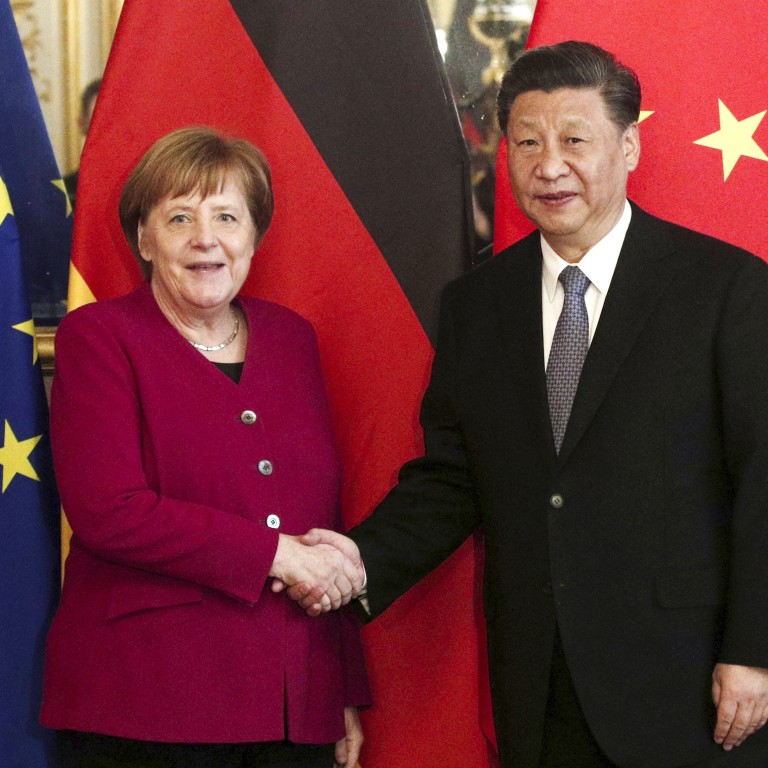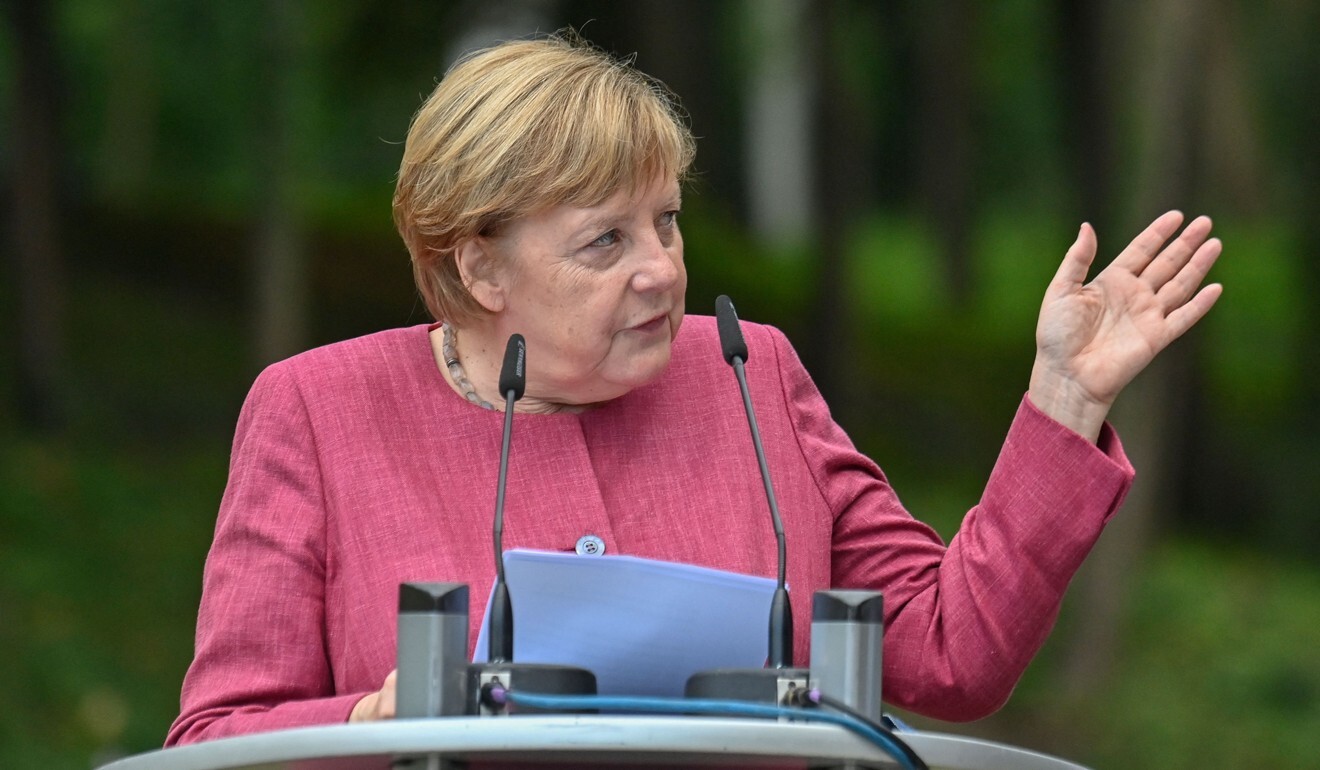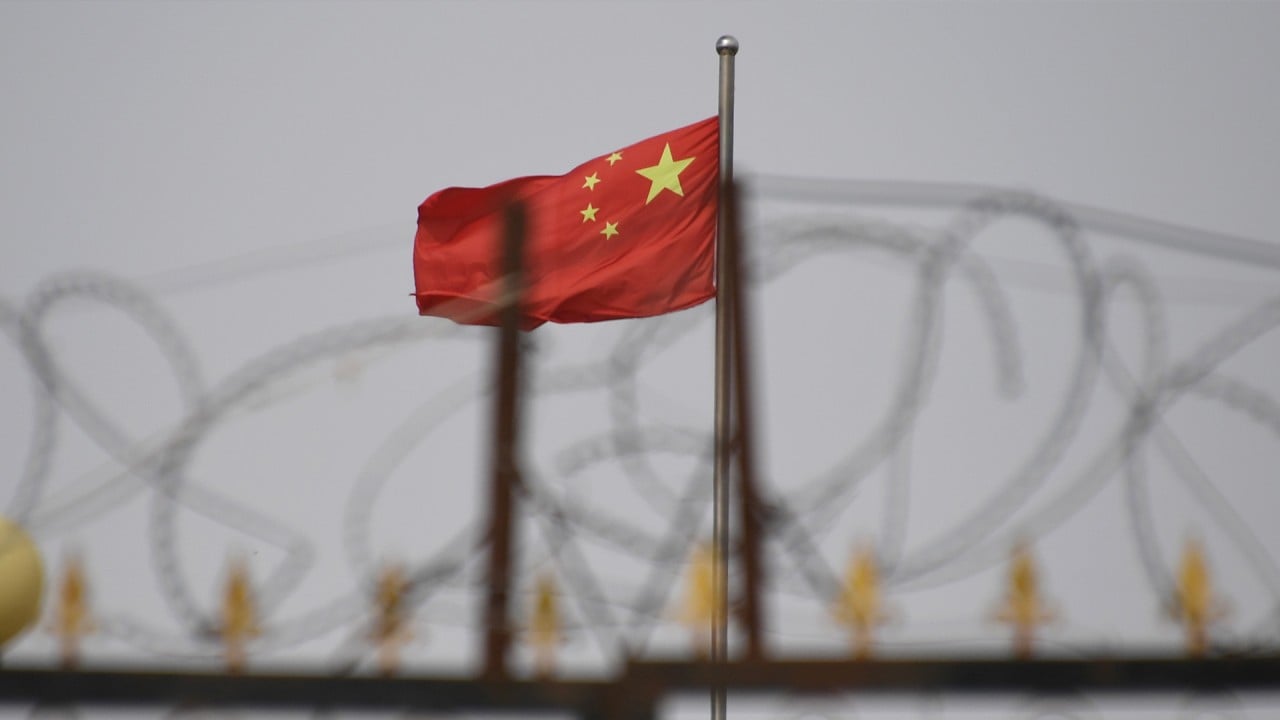
Angela Merkel and Xi Jinping discuss ‘close economic ties’ in likely last official call together
- Merkel called the EU-China investment deal ‘mutually beneficial and win-win’, according to a Chinese readout of Friday’s call
- German readout did not mention the controversial Comprehensive Agreement on Investment; Merkel’s office says they talked about Afghanistan, economic issues
Xi thanked Merkel for being “actively committed to promoting practical cooperation and friendly exchanges between Germany and Europe with China” and “the high level of mutual trust between China and Germany”.

04:02
UK, France, Germany and most other European allies end Afghanistan evacuation
The long-standing German leader has been the architect of close commercial ties between Germany and China during 16 years in office.
But her party’s candidate in this month’s election, Armin Laschet, is trailing badly in polls. With the likelihood of a new government in Berlin, it is uncertain whether the cosiness with Beijing can continue.
Germany’s ambassador to China dies suddenly days after taking office
Senior foreign policy officials from each of the four mainstream parties called for a rethink in Germany’s foreign policy in the Indo-Pacific region at the launch of the Berlin office of the security think tank International Institute for Strategic Studies on Tuesday.
The Social Democratic Party (SPD) leads in the polls, and while candidate Olaf Scholz has said virtually nothing about China in the campaign, SPD foreign affairs spokesman Nils Schmid told the Post in Berlin this week that there can be no progress on the CAI while sanctions remain on MEPs and others.
The Greens and Free Democratic Party are predicted to be kingmakers in the election, with each tipped to join the SPD in a “traffic light coalition” – so-called because of the red, green and yellow colours of the respective party logos. Neither party will support the CAI in its current form.

At Tuesday’s event, Alexander Graf Lambsdorff, foreign policy spokesman for the Free Democratic Party, a pro-business group, said that while it is generally supportive of open markets and free trade and investment, it would not support the deal until China makes improvements to its human rights and labour rights conditions.
Merkel’s own Defence Minister Annegret Kramp-Karrenbauer used the event to decry the “lack of political will” to reform policy towards the Indo-Pacific region, without mentioning China by name. Kramp-Karrenbauer said she wanted the EU to establish a “permanent presence” in the region.
The EU is expected to release further details on its nascent Indo-Pacific strategy next week.
Germany’s China challenge: it’s important, but voters don’t seem to care
Merkel’s support for the CAI is not altogether surprising: she was EU’s chief sponsor on the deal and annoyed some of her European counterparts by forcing it over the line on the last day of Germany’s presidency of the Council of the EU in December.

03:36
Beijing hits back at Western sanctions against China’s alleged treatment of Uygur Muslims
Hecker was a close confidant of Merkel on foreign policy issues. In Berlin circles, his appointment was seen as both confidence that Merkel’s conservative faction would remain in power and also that she had little appetite to reform the German-China relationship.
German analysts have suggested that whoever is Merkel’s successor, they will struggle to maintain the status quo on China, with relations becoming increasingly fraught in recent years. A poll by the European Council on Foreign Relations (ECFR) found that 47 per cent of Germans “regard China as a rival or outright adversary that is in conflict with Europe”.
Janka Oertel, director of the ECFR’s Asia programme, said that while Merkel-era policies “focused on enhancing and deepening trade relations with China, while hoping that the country would slowly adapt and integrate into the rules-based international order, made sense at the time”, they are out of date given the increasingly authoritarian and assertive nature of China under Xi.
“The Chinese leadership has defined its own decoupling and autonomy agenda, which is enshrined in President Xi Jinping’s speeches and the party’s latest five-year plan,” Oertel wrote in a note.

